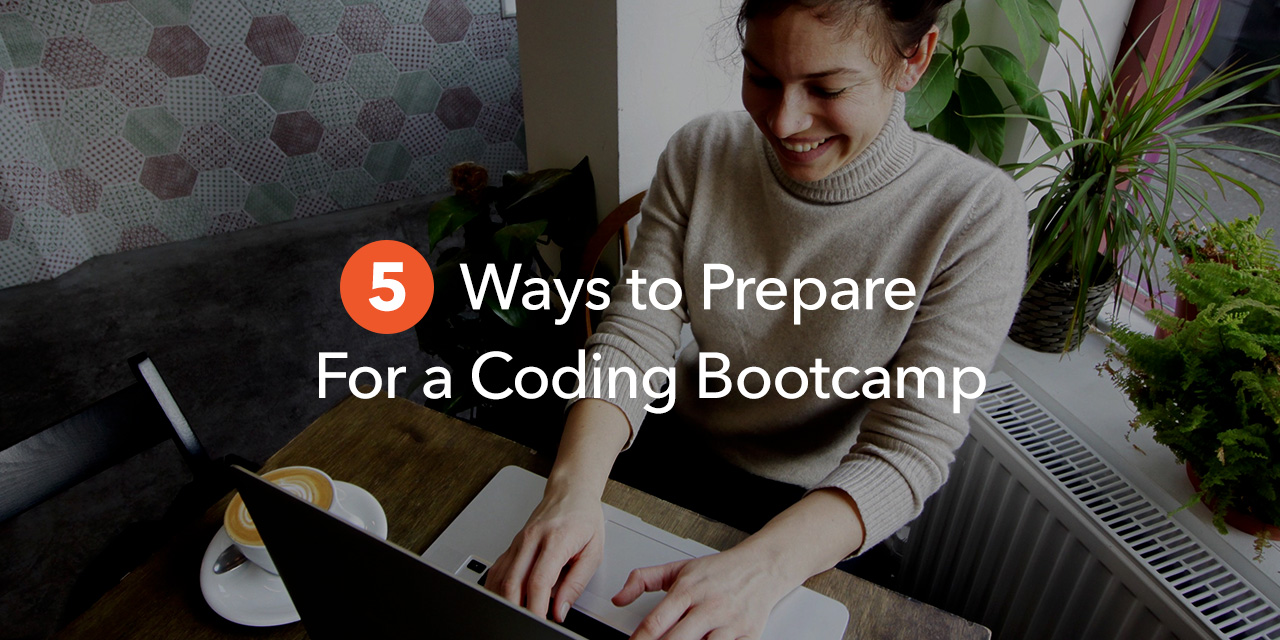Amy, 31, made the decision to change careers and become a software engineer at the beginning of 2018. ‘I’d had enough of my old job in corporate training and I wanted to do something new. However, I could only afford to study online and part-time, because I needed to carry on earning a salary. That’s why I chose the flexibility of an online coding bootcamp.’ Although Amy knew this was the right decision, she was keen to prepare for her bootcamp before it began. ‘It’s a new way of learning,’ she explains, ‘online, part-time and it’s programming! I needed to do everything I could to get up to speed before hitting the runway.’ So, how can you best prepare for a coding bootcamp? Here are five strategies to become bootcamp-fit before the action starts warming up.
1. Plan, plan, plan
Organise your schedule before your course starts. Most online coding bootcamps require 5-30 hours per week. Decide how you’re going to slot these hours into your week and then actually draw up the timetable.
Download some apps to make you productive during your ‘learning times’. Be Focused, for example, makes you get more done by breaking up projects into tasks and then scheduling breaks, so you’re forced to work for a certain number of minutes before checking your phone. It utilises what’s known as the Pomodoro Technique, which is a time management method, to break work into 25 minute intervals with short breaks between.
2. Get Technically Fit
The ideal way to prepare for a coding bootcamp is to develop some technical expertise before you start. You wouldn’t rock up at a marathon before training beforehand, right? The same thinking applies here. Use free resources online to read about the programming languages you’re going to be studying and to learn the basics.
Try Coursera, a large online course library, where courses are free. You pay if you want to get the certificate. Many topics, including coding and computer science, are taught. Or try edX, an open-source higher education program under the auspices of MIT and Harvard. Courses include Java, C# and Python, among many others. Remember, though, these courses are more of a taster and are primarily video-based, so you won’t cover much of the actual practicality of coding.
You could also try a free coding bootcamp trial offered by a number of online institutions including HyperionDev. Or sign up with an open-source community like freeCodeCamp to brush up on some beginner coding skills. The thing to remember is that most people sign up for bootcamps, because they anticipate needing mentoring when they get stuck. However, picking up some initial basics on your own is an excellent way to prepare for a coding bootcamp.
3. Get Mental
Programming can be tricky. The Footnotes, a career portal website, outlines the four psychological stages of learning to code including:
The Honeymoon: This is the first magical introduction to code.
The Cliff of Confusion: You’re getting a little stuck and need help. If you’re on a bootcamp, you’ll make good use of your mentor during this phase.
The Desert of Despair: This is a fairly long and lonely stage. You’re sitting alone and you’re really stuck. Again, this is the time to speak to your mentor to guide you through this hellish desert.
The Upswing: Things are now starting to come together. Enjoy it. You’ll build even more confidence with practise. Eventually, you’ll have great pride in the work you do and the code you write.
Prepare for a coding bootcamp by understanding your upcoming mental journey.
4. Bookmark Resources
There are many developer resources out there that programmers use when they get stuck. A good place to start is Stack Overflow, which attracts over 50 million developers on a monthly basis. You can ask your programming questions there, and you are almost guaranteed to have an avid user answer your question soon. Reddit Programming is also a good spot to bookmark and check out prior to your bootcamp. You could also look at Experts Exchange, a paid site, and Quora, which is a Q&A sites on any topic. You will find that the developer and programming world has an incredible community of support through resources and forums like these.
5. Start Trying on Your New Identity
You’re a programmer now. Act like one. Get going on GitHub, where you can host and review code, manage projects, and build software alongside millions of other developers. Add your existing code to share with prospective employers or start new projects to keep yourself relevant. GitHub accounts are free, and it’s the best place to swap ideas and code with other programmers online.
In addition, start a blog about your programming journey. You’ll be practising your web development skills as well. Update your LinkedIn account – developer demand is high; employers will be knocking on your door soon.
In closing, there are many ways to prepare for a coding bootcamp. The bottom line is that when the starting gun goes off and your bootcamp begins, you want to feel fit and ready. That way, you’ll cross the finishing line without breaking too much of a sweat. To find out more about various bootcamps offered by HyperionDev, check out their courses here.


